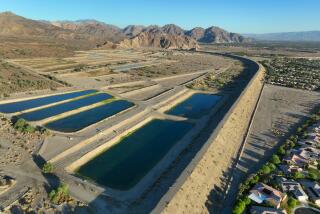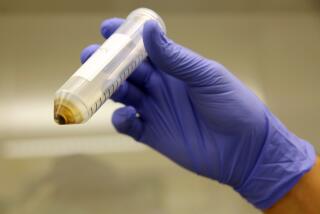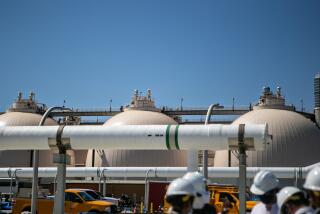Chemical smell to linger after West Virginia water is safe to drink
The water ban that left 300,000 people in West Virginia unable to drink tap water, shower or wash their clothes was lifted in some places on Monday as the aftermath of a chemical spill stretched into its fifth day.
But as hospitals began to get their water systems online and officials disbursed instructions to homeowners on how to clean out the chemical that contaminated their tap water -- and in some cases, their clothes and their dishes -- at least one reminder of the disaster was expected to linger a while longer.
The signature black-licorice smell of the obscure coal-cleaning chemical was expected to stay in West Virginians’ tap water even after it is deemed safe to drink, officials said Monday.
“Don’t flush to try to get rid of all the odor,” Jeff McIntyre, president of the West Virginia American Water utility, told reporters at a news conference, alluding to the “flushing” protocol that officials designed to make homeowners’ water usable again.
The process involves running all hot taps for 15 minutes, running all cold taps for five minutes, replacing water filters and rewashing contaminated clothes and dishes.
McIntyre added that the process was designed to be followed “precisely” to get water levels below one part per million of 4-methylcyclohexane methanol, which leaked out of a storage tank a mile and a half up the Elk River from a major water intake plant.
And although officials still don’t know much about the chemical’s human effects, McIntyre said that the colorless liquid still gives off the licorice odor at a level 10 times lower than the level that was deemed acceptable for human use by the Centers for Disease Control and Prevention. The chemical is water soluble and is expected to dissipate eventually.
Hospitals began the flushing process Monday after days of operating on delivered water. “The only thing they have seen is a slight odor,” said Karen L. Bowling, secretary of the West Virginia Department of Health and Human Resources.
Fourteen people have been admitted to area hospitals due to possible chemical exposure, and 231 more people were treated and released, Bowling said. Officials were still working to set up a system to monitor people possibly affected by the chemical.
Executives for Freedom Industries, the company behind the spill, have not commented publicly since a hasty Friday news conference, during which the company’s president drank from a bottle of water in front of news cameras.
The public relations firm hired by Freedom Industries after the spill reportedly cut ties with the company on Sunday.
U.S. Attorney for West Virginia Booth Goodwin vowed to investigate the leak and whether federal laws were violated.
“Companies whose facilities could affect the public water supply should be on notice: If you break federal environmental laws, you will be prosecuted,” Goodwin said in a Monday statement. “Our drinking water is not something you can take chances with, and this mess can never be allowed to happen again.”
More to Read
Start your day right
Sign up for Essential California for news, features and recommendations from the L.A. Times and beyond in your inbox six days a week.
You may occasionally receive promotional content from the Los Angeles Times.







